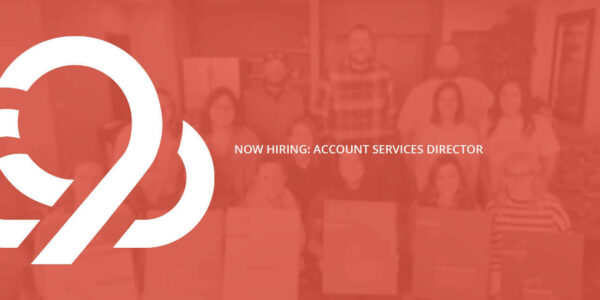
Why Isn’t My Marine Dealership Showing Up Online?
You have a website. You’re listing your boat inventory. So why aren’t you ranking higher on search engines like Google or Bing?
Standing out from other boat dealerships in your area can be difficult — especially when so many websites are cookie-cutter and lack personalization.
So why hasn’t your Google or Bing ranking improved? You’re likely missing out on key aspects that make up a successful search engine optimization (SEO) strategy.
What is SEO for Marine Dealers?
You’ve heard the term “SEO” before, but do you find the waters murky when it comes to creating an SEO strategy that drives qualified web traffic to your site?
SEO isn’t one singular thing that will make your website stand out. It’s a matter of making your website as user-friendly as possible by analyzing search trends, creating high-quality content and making technical improvements to your site. It’s all part of a successful content marketing strategy.
Four Reasons Your Website Isn’t Shining Through Online
If your boat dealership lacks a Google and Bing presence, it’s likely a combination of these common marine marketing SEO mistakes:
A Lack of Keyword Research
Knowing what your target audience is searching for can make all the difference when it comes to knowing which keywords to include on your website.
Through tools like Moz Keyword Explorer and Google Search Console, you can see what keywords are actually bringing users to your website. Take a look at the keywords.
Do they make sense? Do you actually want to be ranking for these keywords? Are they actually irrelevant to your website?
You can also utilize these tools in order to look for future ranking opportunities. For example, if you want your marina to rank in the top 10 for the keyword “Milwaukee Boat Dealer,” you can input your website and keyword(s) into Moz or Search Console and view their current position as they relate to your website.
You can then make sure these keywords are incorporated throughout your site and track the keywords over time, hopefully resulting in good jumps in position.
Missing Out on Proper Site Maintenance
Just like the inventory you sell, your website also needs maintenance every now and then.
Think of the average boat shopper. If they land on a page that no longer exists and it doesn’t properly redirect to an appropriate page on your website, they’ll get frustrated and likely leave the site altogether.
These errors are avoidable in most cases and can be prevented by regular site crawl maintenance. Tools like Moz Pro can search your entire website and identify new and recurring issues over time, giving you tips to fix these errors and keep your website running smoothly.
Along with crawl error maintenance, you should also check to make sure every page on your website has a page title and a proper meta description that includes relevant keywords. We can’t tell you how many times we are working on a client’s website and find that every page has the same meta description (or no meta description at all)!
Not Caring About Off-Page SEO
Off-page SEO is all about building online authority (trust and reputation) for your website. Off-page SEO has long been defined by the quantity, quality, and relevance of links to your website, which establish your SEO authority and ultimately influence your search results ranking.
One way to achieve SEO authority is by having a solid link-building strategy. Link building efforts include cross-promoting, networking and community building with other businesses in your circle to get them to link to your website (and finding ways to link back to them on your website in return).
The number and quality of links to your site help determine your page rank, which is a measure of how important Google thinks your website is. Plus, incorporating links into your own website helps search engines like Google and Bing index all of the content on your website.
A good way to begin your link-building strategy is by linking to different boat manufacturers and boat accessory businesses on your website. You could even write a blog post on your website and reference these businesses.
After the blog is published, consider reaching out to these different boat businesses and ask for a backlink in return. This leads nicely into our next common SEO strikeout from boat dealers.
Not Enough (Helpful) Information on Your Website
You want to sell boats, so it only makes sense that you include boat inventory on your website. But what else? There’s a lot more to boat shopping than simply looking at a boat and immediately purchasing.
A person first needs to realize that they are in the boat market. But how are they going to realize this?
Consider writing blog posts about the benefits of boat ownership.
What are the advantages of buying one type of boat over another? Address these questions somewhere on your site so that when people start researching, you’re providing them the answers they’re looking for.
People will also want to know why they should purchase a boat from your marina. Does your website have an “About” page? If so, is it optimized?
Newsflash — simply saying your dealership provides “great customer service” isn’t enough. Show people how you’re offering great customer service.
Why should a person buy from you instead of the other area marina a mile down the road? Identify your value proposition and make sure it’s evident throughout your website.

Kickstart Your Marine SEO
There are so many positive optimizations you can do to boost your marina website when someone searches online.
Remember to always customize the content on your site to be unique and stand out from the rest, while also understanding that succeeding at marine SEO isn’t a short three-hour tour around the lake. It’s a long journey, often taking many months.
Are you a busy boat dealer who knows that SEO is essential for your marine dealership, but you just don’t have the time to figure it out right now?
Set up a free digital assessment with 9 Clouds! We’d love to help you figure out what’s working (and what’s not) when it comes to your website.
Show Up With SEO »

![Human vs AI A/B Test [Spoiler Alert: Humans Win!]](https://9clouds.com/wp-content/uploads/2024/02/Volvo-dealership-1-600x388.png)


